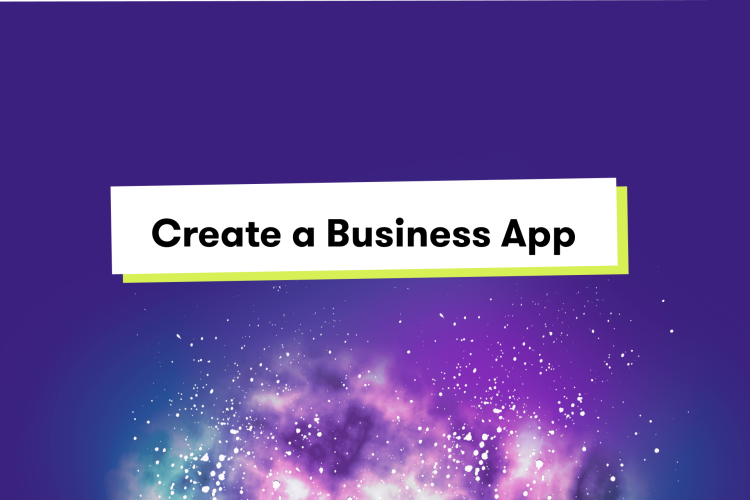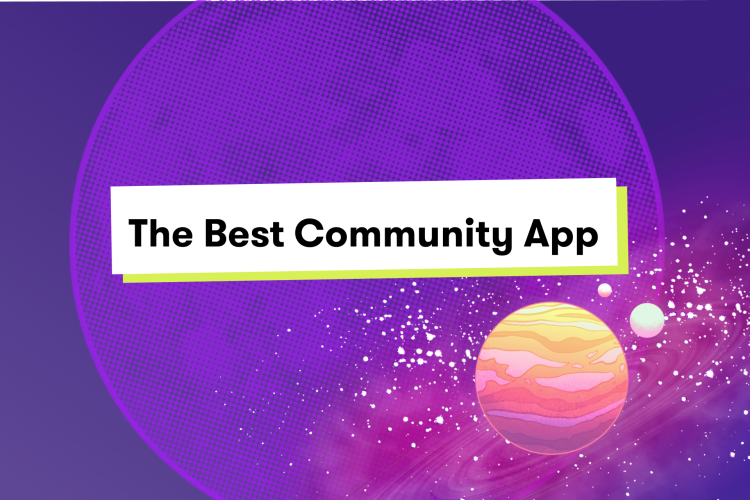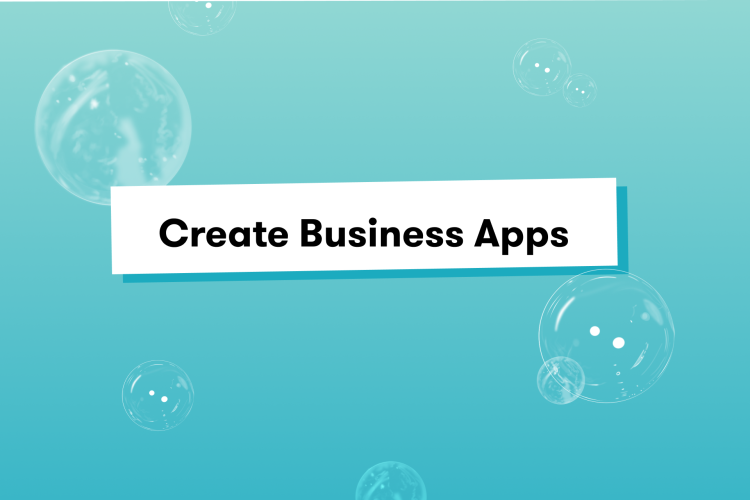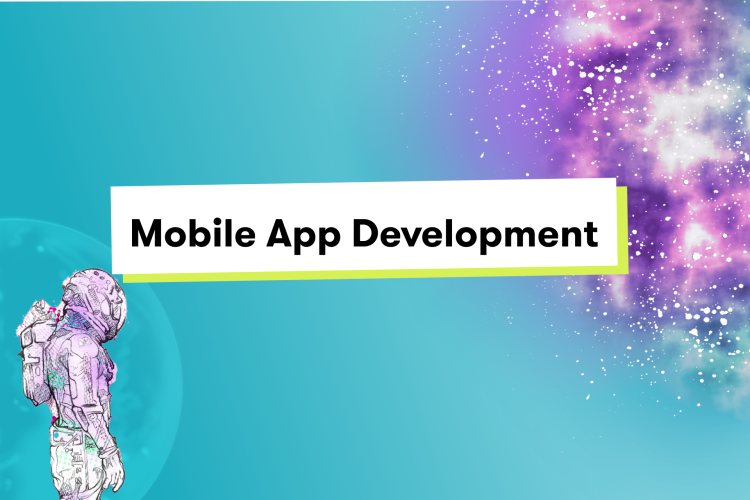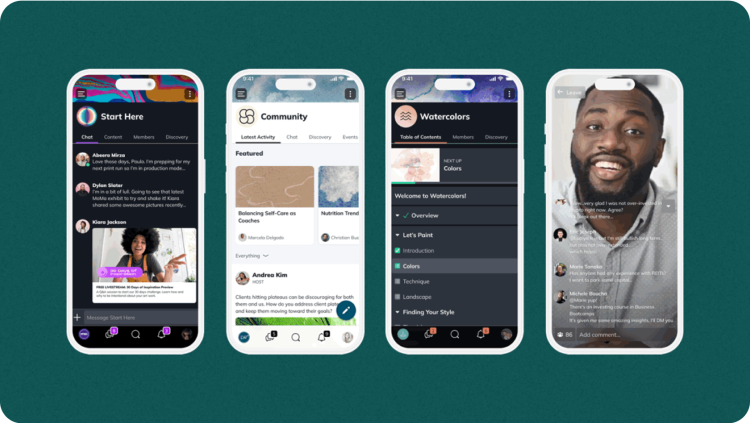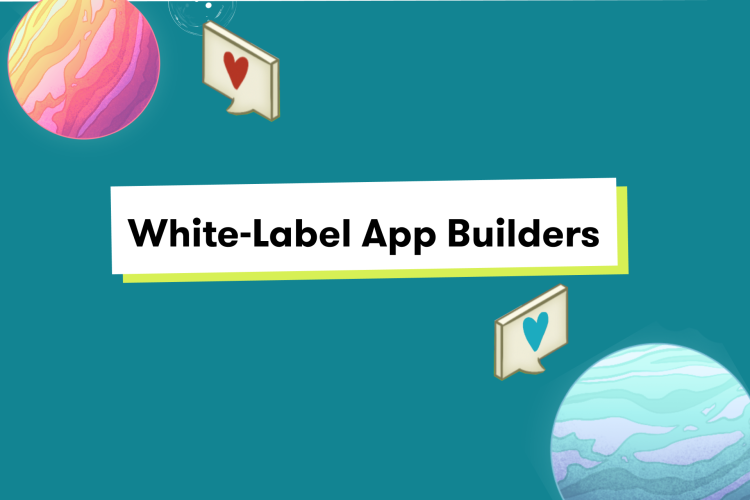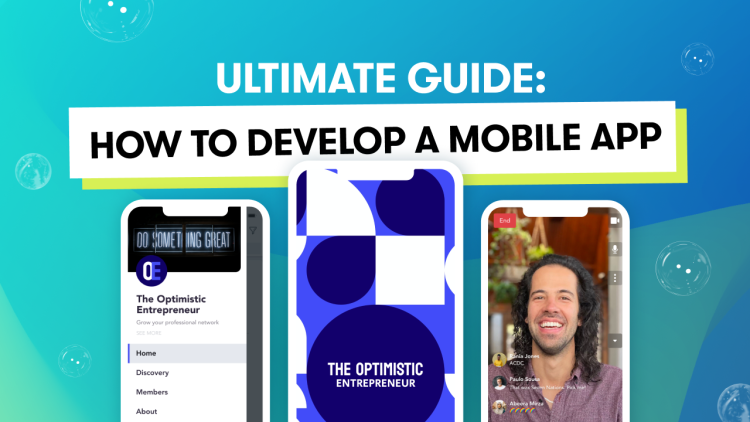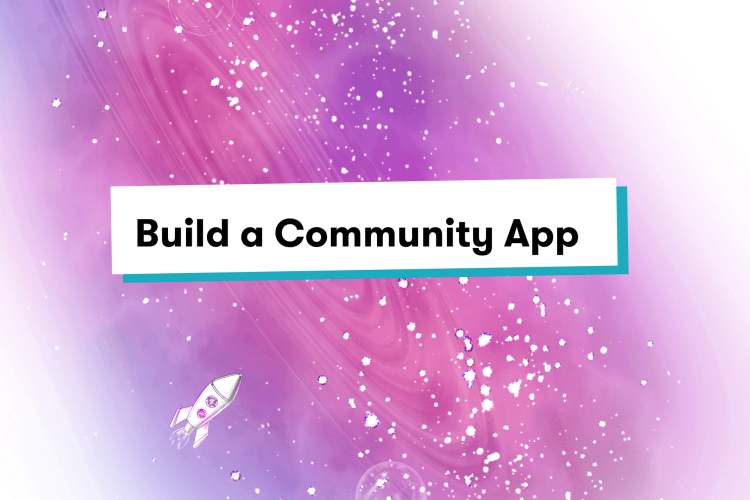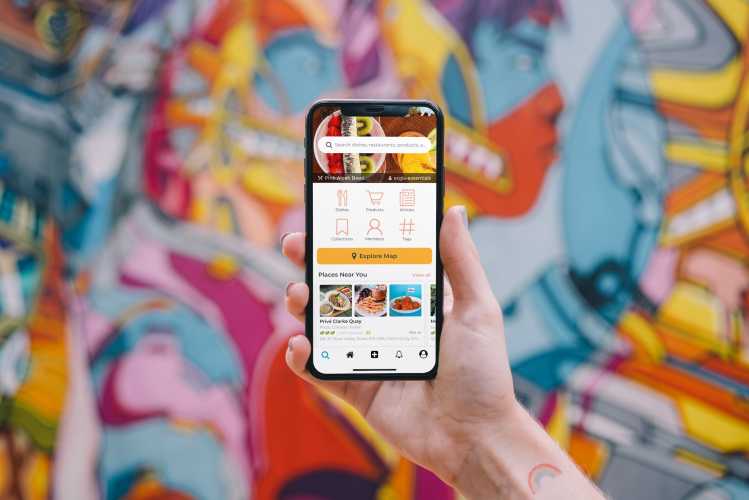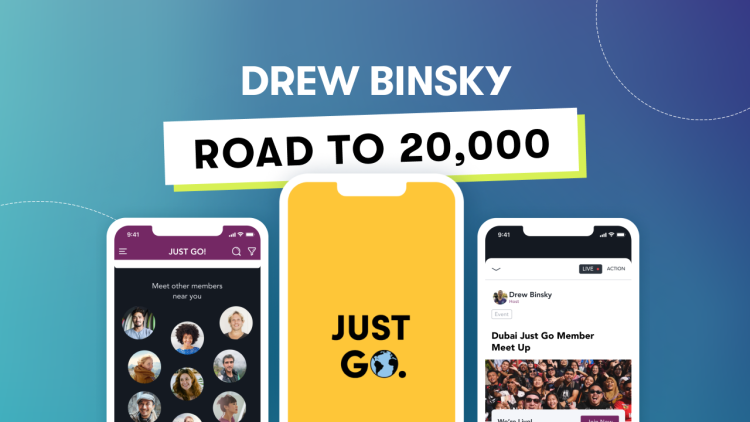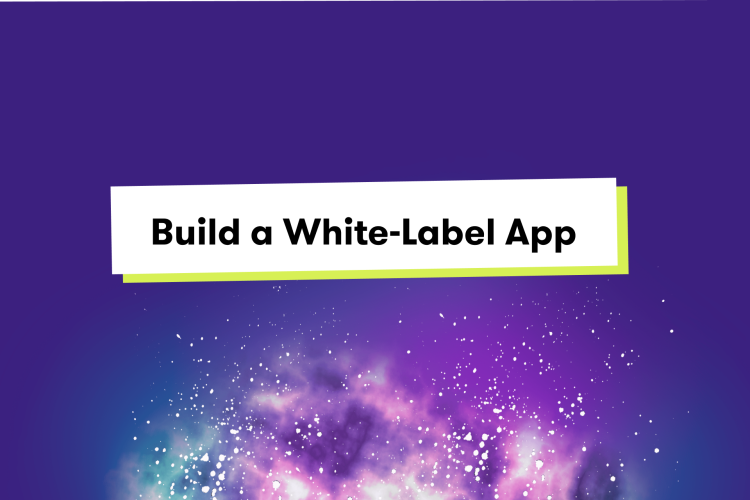Branded Apps
10 Customer Engagement App Options (+ How to Build Your Own)
Here are 10 customer engagement apps every brand should know about, and how to build your own.
Author
Mighty Team
Last Updated
March 24, 2025

Table of Contents
Martinus Evans didn’t want to start just another Facebook running group for his fans.
As a creator with more than 95,000 Instagram followers (@300poundsandrunning), he had seen lots of his peers take this route. But it didn’t make sense to him.
As more and more people followed him on Instagram, listened to his podcast, and bought his Slow AF merchandise, he knew what he really wanted. He wanted the ultimate destination for “back of the pack” runners to find each other.
Using Mighty Pro, he promoted the Slow AF Run Club apps to his email list and in his Instagram Stories. Then he launched. In 24 hours he had doubled his membership and now has over 20,000+ members thriving in an engaged community and membership site under his own brand, created on his terms.
It's a customer engagement app that paid off.
When building a brand, customer engagement is a vital part of creating trust with your customers. A report from Salesforce found that 95% of customers say that they will stay loyal to brands they trust. And it found that 84% of customers say they will give their business to a company that treats them like a name–not a number.
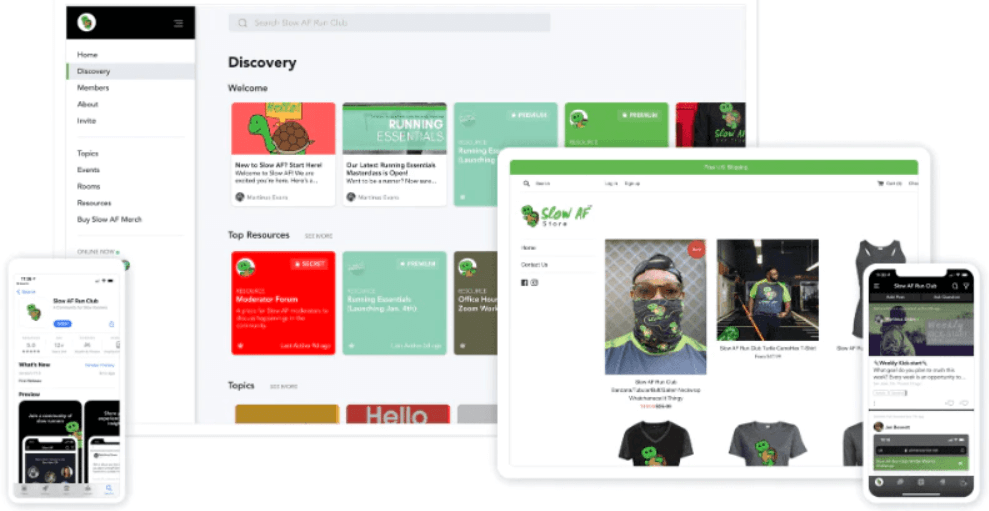
This makes customer engagement a central part of your brand’s growth strategy. But it can also be intimidating and overwhelming to build real customer engagement and keep it strong as you scale.
In this article, we'll talk about how to scale customer engagement with apps. We'll talk about 10 customer engagement apps every brand should know about, and we'll even walk you through how to build your own like Martinus Evans did.
Try these on for size, and watch your real connections with customers improve customer satisfaction, sales, and retention.
What is customer engagement?
Customer engagement is about building meaningful interactions between a brand and its customers. This could include delivering value to potential customers, offering more to existing ones, and even reaching out to past customers. Good customer engagement means thinking about customers as more than a sales transaction, focusing on building a long-term relationship with them instead.
Customer engagement can be closely connected to a concept called “Customer Lifetime Value” – it recognizes that the value of a customer is more than the value of an individual transaction, and that repeat business and/or customer retention is an important part of any brand!
Building relationships with customers through customer engagement can be an essential part of great marketing. It helps a brand to grow awareness, but also to better understand their customers. As the great Peter Drucker once said, “The aim of marketing is to know and understand the customer so well the product or service fits them perfectly and sells itself. The aim of marketing is to make selling superfluous.”
10 customer engagement app options
1. Mighty Pro
Best for customer communities
Mighty Pro builds powerful customer community apps under your brand. It can bring together features like content, community, courses, and commerce. And Mighty also lets you offer live streaming, live events, discussion forums, long and short-form content, and more.
Best of all, Mighty powers your community with a set of tools like no other, including our AI community engine: Mighty Co-Host™, that gives you powerful engagement tools like automatic landing pages, invite messages, and an Infinite Question Engine to keep conversation alive.
Mighty Pro is perfect for the brand currently slugging it out to get attention on social media like LinkedIn or Twitter, or trying to run a business Facebook page or group. It turns your content efforts into a powerful customer engagement tool for your brand. You can stop fighting the algorithm, stop screaming into the void of social media–and actually build real connections with your customers.

We’ve built B2C customer engagement apps for brands like Slow AF, that we mentioned in the opening. But we’ve also built engagement apps for B2B communities, like Mindbody which has a 16,000 member community centered around mastering their software for wellness business owners.
Using a community for customer engagement is an awesome way to help customers connect to each other, create a community of practice, and master a product.
2. Salesforce
Best CRM platform
Salesforce isn’t a customer-facing app, but it’s still one of the best customer-engagement apps out there. This is because Salesforce is a customer relationship management (CRM) platform that helps you keep track of every aspect of your customer relationships; things like sales, marketing, customer service and support, and past purchases. It does all this on a cloud-based software you can access from anywhere.
When it comes to building customer relationships in the first place, the best Salesforce tool is the Sales Cloud, which gives organizations the power to track leads, automate part of their sales processes, and get intelligent insights to help create more sales. You can create a customer database, prioritize leads based on likelihood of success, and track deals–giving you a one-stop shop for understanding how your customer relationships happen and how they turn into sales.

The Service Cloud is also a powerful customer engagement tool for the other side of the journey–managing relationships with existing customers. It lets you do case management, tracking existing customer support cases and building a knowledge base for dealing with common issues. Service Cloud can also be used to build self-service customer-facing platforms to scale and automate your customer engagement even more.
Bottom line, Salesforce is a customer engagement app that many organizations would get huge value from.
3. Birdeye
Best for customer experience monitoring
Birdeye is a reputation and customer experience platform for local businesses and brands. Birdeye platform brings customer experience together with reputation management, business can use Birdeye’s platform and app to manage online reputation, connect with prospects through digital channels, and gain customer experience insights to grow sales and thrive.
With a suite of tools for tracking and improving your online presence, it’s a fantastic tool for a business that wants to focus on creating positive customer engagement online–especially on social media.
Birdeye can do things like social media monitoring, so that you can see what’s being said about your brand online (and hopefully engage). It also lets you manage your reviews, and even gives you tools to proactively cultivate good reviews from satisfied users with things like automated email or SMS prompts.

Finally, Birdeye brings your messaging channels together from all your social media platforms. You can use it to manage customer engagement across traditional platforms, and it gives you important analytics and consumer sentiment reports to understand what the engagements mean.
Birdeye is a great customer engagement app because it helps you manage your reputation across social media channels and review sites, and that’s valuable.
4. Podium
Local customer experience monitoring
For those looking for an alternative to Birdeye, Podium is a good option–but with a local bend. It’s an all-in-one consumer sentiment and communication platform that has some feature crossovers with Birdeye.
Like Birdeye, it includes a review management system that lets you monitor online reviews, track new reviews, and respond to them. It also has messaging functions for a set of different channels like SMS and social media platforms, which let you deal directly with customers on those platforms.
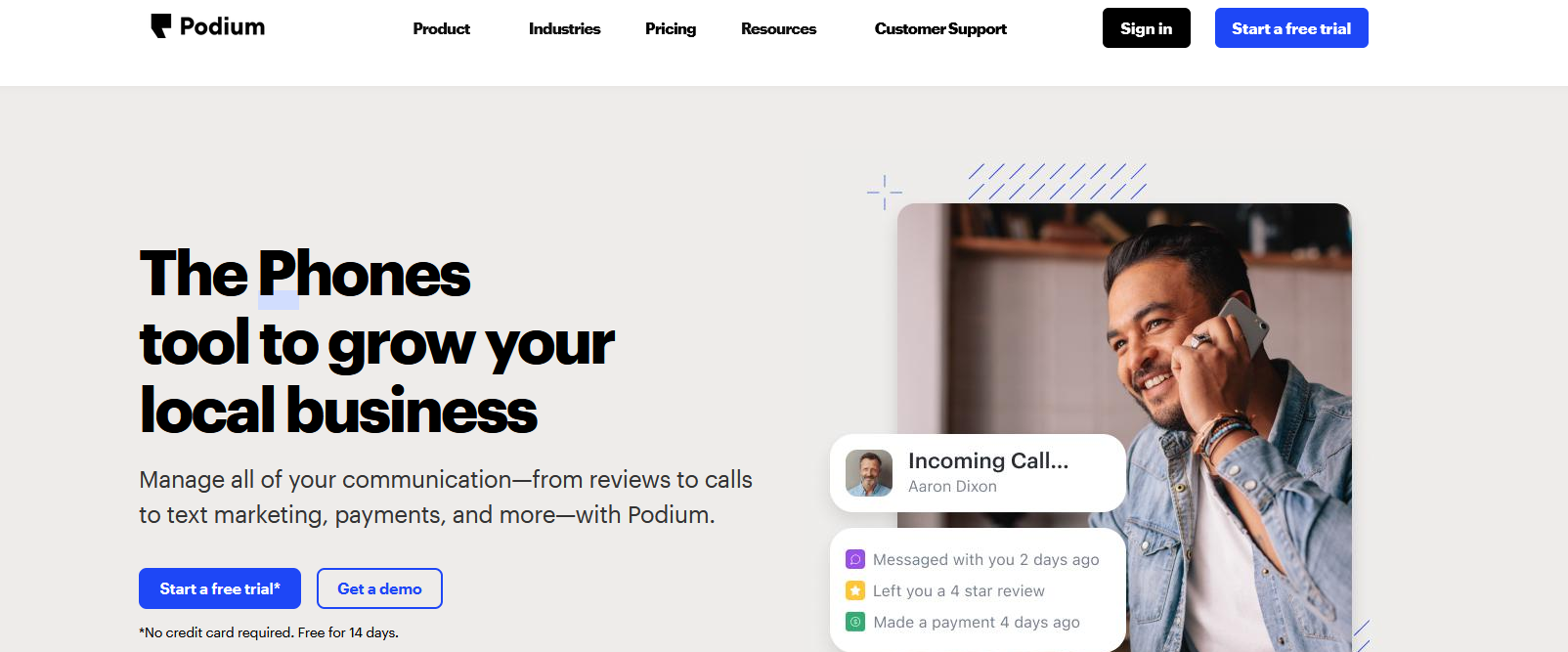
It also gives you a set of native feedback gathering tools, so you can get feedback through surveys and gain important customer insights on where you can improve products and services. Finally, it has a calling tool built in, so you can make phone calls, and it even has payment options.
If you’re a local business looking for a tool that manages your customer experience online, Podium is a great option.
5. Reputation
Best for data driven customer experience
Staying with the theme of reputation management tools for customer engagement, Reputation is one final option. It has reputation management tools, but it mixes these with a powerful data-aggregating tool to understand the experience of both your brand and your competitors.
As a result, Reputation generates a ton of feedback from customers, both directly and indirectly, and you can feed these into your business processes. These are then translated into your Reputation Score and Customer Satisfaction Score, which gives you valuable insights for making business improvements.
Some of the other features are familiar from other reputation management tools. Tracking online reviews and ratings. Proactively generating customer feedback and reviews. Social media monitoring. The thing that makes Reputation unique is the power of the comparison tools to understand your competition, and the fact that they can drive huge customer listening at scale for large companies.
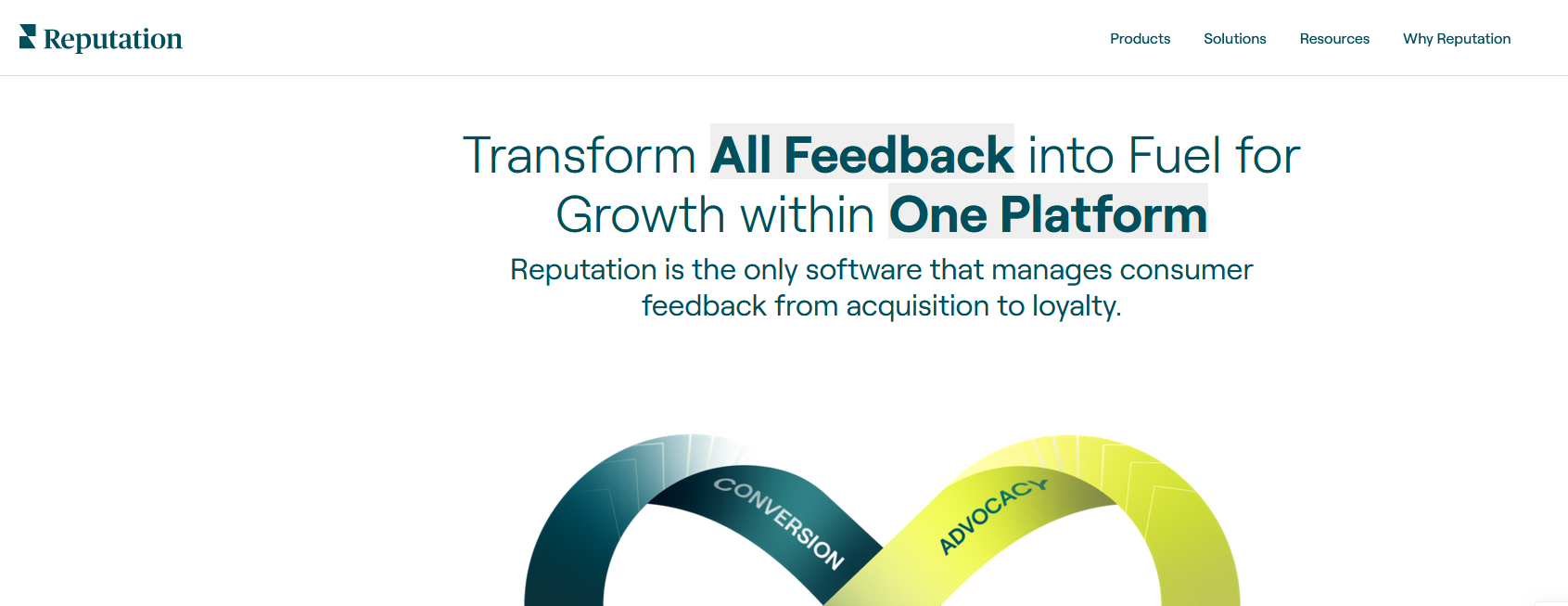
This makes Reputation a powerful tool for both understanding your customer engagement, and for responding to customers via SMS, phone, and social media channels.
6. Zendesk
Best customer service app
Leaving the reputation management software behind, let’s talk about Zendesk. Zendesk is a cloud-based customer service platform that lets brands manage their customer relationships across a bunch of different channels. With Zendesk support, you can manage support requests from email, chat, and social media. It comes with built-in messaging too, so your agents can engage directly with the customers on the app.
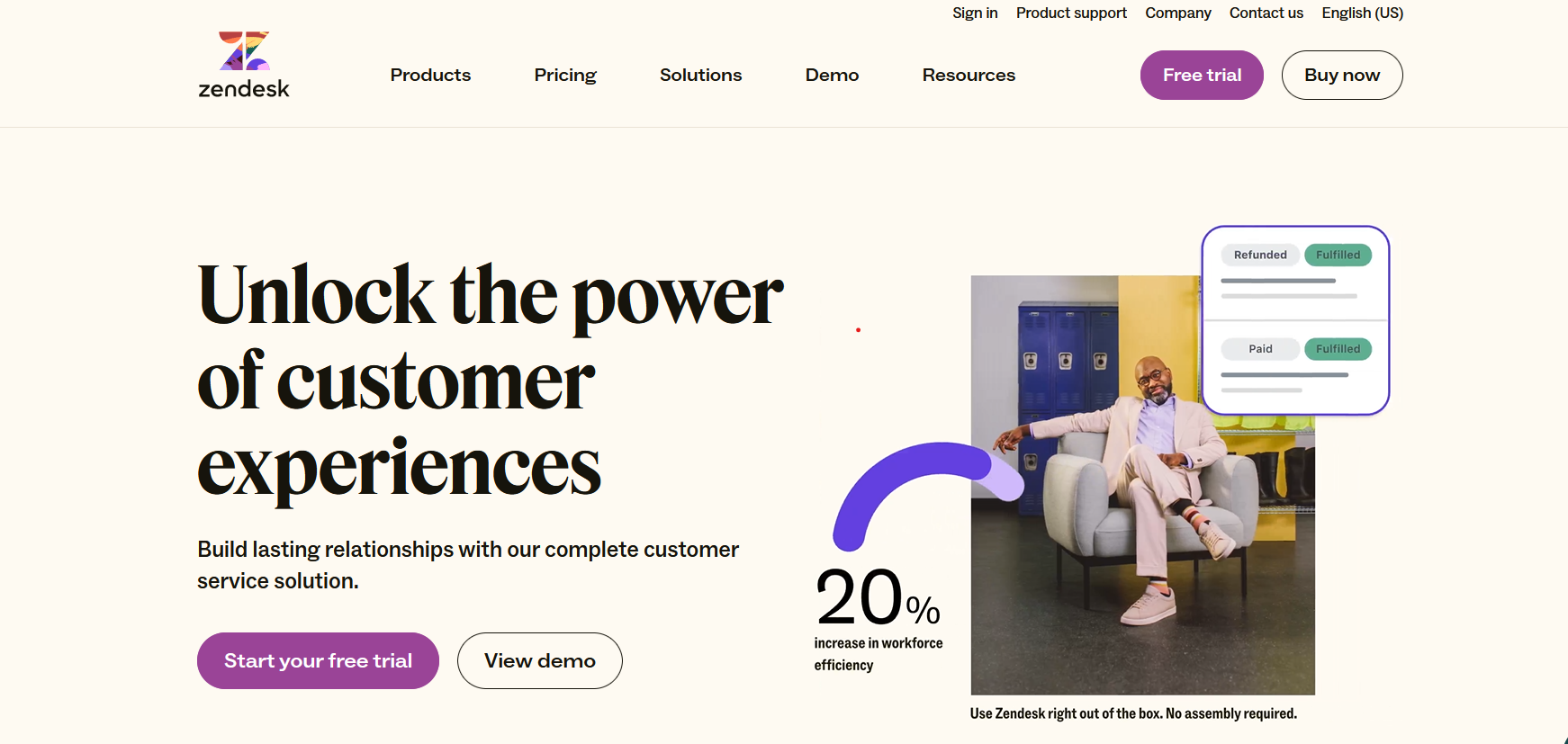
Zendesk allows you to create tickets and track the responses to them, basically giving you a one-stop tool for customer support. You can also log these, assign them to your team, and mark them as resolved once they’re dealt with. There are also lots of automation features built in to help you serve customers efficiently, and you get useful data on things like your customer service agents’ performance and customer satisfaction.
7. Pendo
Best for improving user engagement
When it comes to customer engagement apps that track user experience and how they engage with your products and applications, Pendo is a really neat customer engagement app. It basically offers actionable insights on how your customers are using your products, and you can gather feedback and get helpful insights from it. This includes direct user feedback collection.
Brands and digital businesses can use Pendo to build surveys and feedback widgets, as well as targeted messages and product walkthroughs. Customers can also be segmented, so you can message certain groups of customers at once.
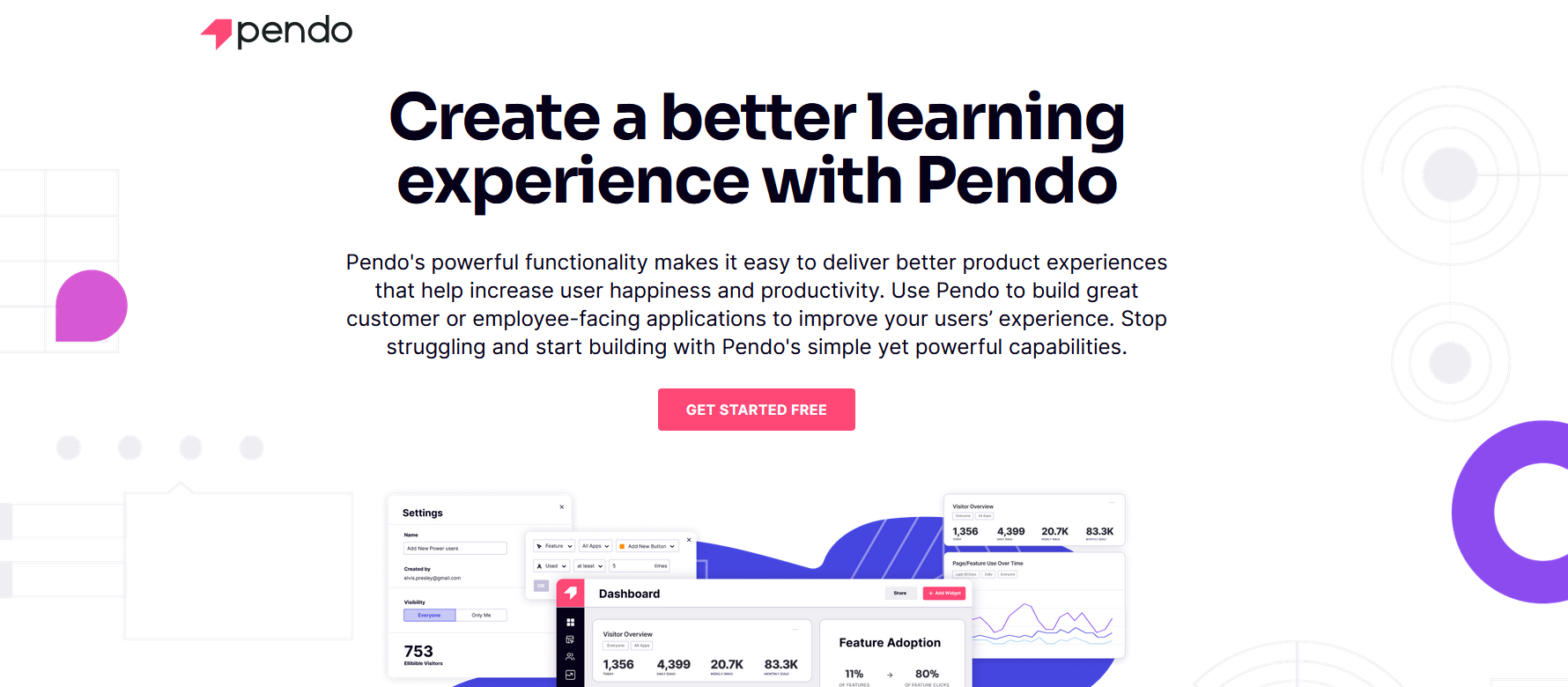
8. Amplitude Analytics
Best for product experience data collection
Amplitude Analytics is a customer engagement app that focuses–again–on customer analytics. It looks at how customers use your digital products and services, and tracks actions, engagement, and events to help you make data-driven decisions about your products.
One great feature is that it has a funnel analytics tool built in, which can help a business understand the customer acquisition journey through data. You can use the data to locate bottlenecks, opportunities for things like upsells or downsells, and basically can improve your conversion rates while mapping your customer journey.
Like several of the other tools above, Amplitude will give you data visualization and reporting options, including different types of charts and graphs to help you visualize the customer journeys.

A tool like this is great for customer engagement, specifically because it can diagnose areas of your funnel that are weak and need more touchpoints.
9. Hubspot
Best integration of a CRM with marketing tools
HubSpot is a top-rated customer relationship management (CRM) platform that mixes a fully-functional CRM with marketing tools–not to mention customer service. When you can integrate your CRM data with your marketing activities, it has the potential to really transform your customer engagement.
With the CRM, you have the ability to manage your customers’ journeys, tracing interactions, deals, and tasks. And the inbound marketing tools let you create content that can convert and connect to your Sales Hub. The Marketing Hub lets you build a website and manage your content, integrated with your social media and email marketing. There are a lot of complementary tools here for things like lead generation and automation–basically letting you create a wrap-around user journey.
Once a lead is passed to your sales team, they can use Sales Hub to track contacts with them, meetings, and analytics. And the Service Hub even gives you a set of customer support tools for ticketing, live support, sharing from your knowledge base, and collecting feedback and running surveys.

For all its complex functions, Hubspot is relatively easy to use with a clean interface and UX. For a CRM that also lets you run marketing campaigns, track tickets, and nurture prospects all in one place, Hubspot is one of the best.
10. Help Scout
Best for Email Based Customer Support
We’re going to round this list out with an email engagement tool that has customer support built in. Most brands are making email engagement part of their customer support, and there’s where Help Scout is userful. For businesses who want to be in their customers’ inboxes a lot, it gives you neat email-building tools.
For example, the shared inbox function can help your team collaborate on responses and inquiries, team members can work together to track tickets, assign tasks, and add notes to customer files.
On top of the shared inbox, Help Scout adds other communication features like live chats and in-app messaging. It’s a really helpful tool for your team to manage customer engagement. It also connects nicely to your knowledge base, so you can easily connect your customers to existing information to help solve their problems.
As with most of these tools, it also offers a set of analytics tools to check things like response times, customer satisfaction, and productivity.
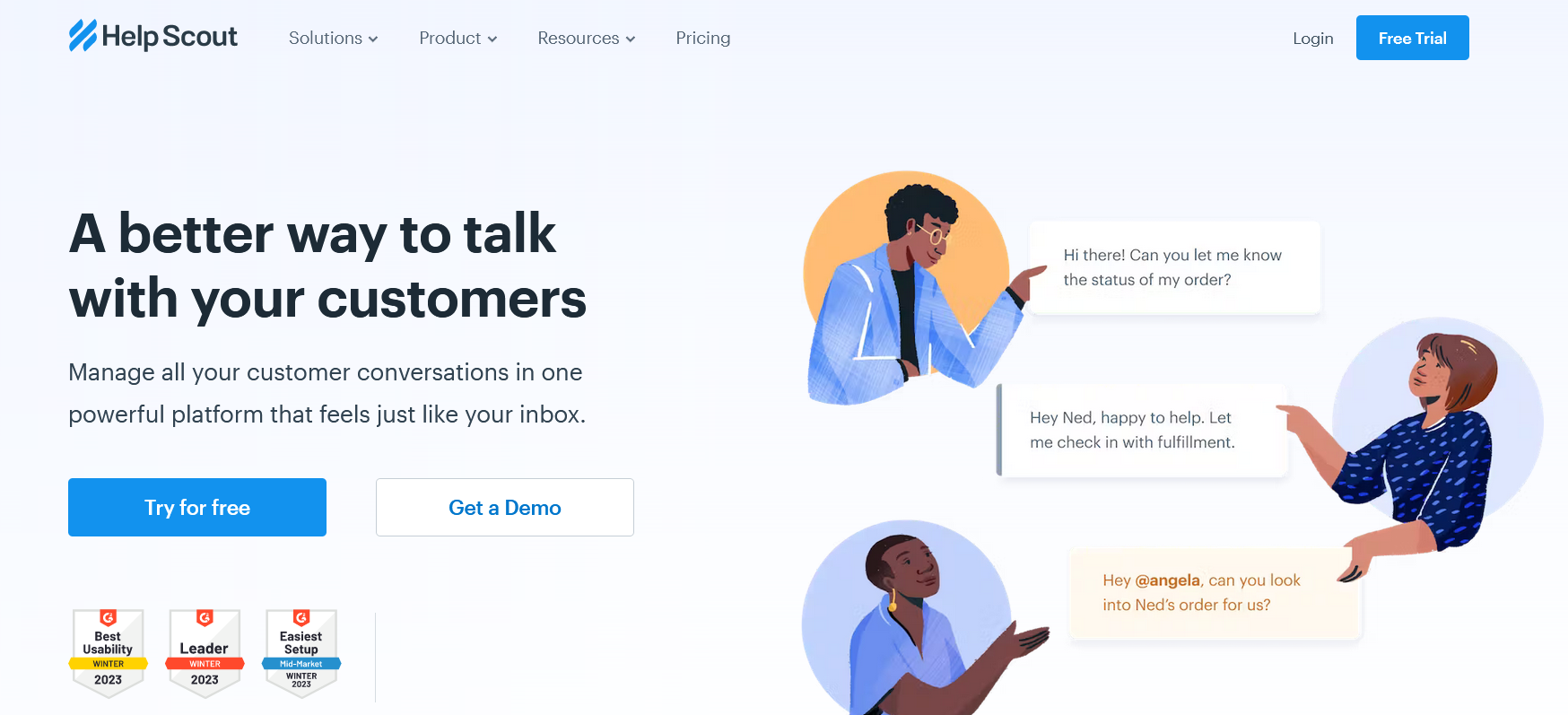
Steps to build a customer engagement app
So many of the apps on this list are amazing tools for managing your customer engagement. But there aren’t many of them that let you build powerful relationships with your customers directly.
This is where Mighty Pro is unique. So if you want to build a customer community app under your own brand and watch your customer engagement grow, here’s what it looks like to build your own.
1. Schedule a kick-off call. We’ll show you some of the amazing customer engagement apps we’ve built and help you identify what you’re looking for. We create a game plan for our work together. 2. Designing the app. We take care of this part. You bring your brand and we’ll build the app, adding things like logos, splash screens, and your unique branding features. 3. Product training. We’ll train your team on how to be successful with your app, including things like migrating members and understanding analytics. 4. Apps complete. Once your app is gone, we’ll help you populate it with content that fits your brand. 5. Plan a launch strategy. While the app is being built, you can get ready for launch–this might include things like sharing on social media or inviting your existing customers via email. 6. Launch! On launch day, we take care of getting your app live in the App Store and Google Play Store. You can see your first members trickling in. 7. Ongoing VIP support. We don’t just build your app. We stay connected with monthly strategy calls, troubleshooting any issues that could come up and helping you be proactive on product training.
Ready to start?
If you’re ready for a customer community under your own brand, where you can bring customer engagement to life, schedule a call with us. We’ll show you how a customer community on Mighty is like nothing else.
Ready to start building your community?
Start a free 14-day trial to explore Mighty—no credit card required.
More like this
Join Mighty Community
Learn the principles of Community Design™ (and see them in action) alongside thousands of creators and entrepreneurs. It's free to join!

Online Courses
Creating a Course
Teaching a Course
Course Platforms
Selling a Course
Communities & Memberships
Community Platforms
Managing a Community
Building a Community
Growing a Community
Monetizing a Community
Content Creation
Creators & Entrepreneurs
Monetization
Content Creation
Starting a Business
Website Builders
Creating & Managing a Website
Events
Event Platforms
Hosting & Marketing Events
Branded Apps
Creating a Mobile App
Coaching Apps
Community Apps
Coaching
Mastermind Groups
Starting a Coaching Business
Coaching Platforms
Filter by Category
Online Courses
Communities & Memberships
Creators & Entrepreneurs
Events
Branded Apps
Coaching
Start your free trial
14 Days. No Credit Card Required.



